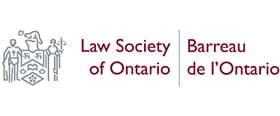The defence raised the following issues at trial:
- It was established in the course of the trial that the “Approved Screening Device” used in this particular instance was not calibrated within 14 days of it being presented to Mr. Washington
- The crown did not establish beyond a reasonable doubt that the breath machine used in this case was working properly given the calibration evidence
- If the breathalyzer machine was not in proper working order then it was not capable of taking a proper analysis of Mr. Washington’s breath
- Accordingly Mr. Washington did not fail to comply or refuse to comply with a lawful demand under section 254(2) of the criminal code
- Mr. Washington made several efforts to provide samples of his breath and he did not willfully try to circumvent the process by “feigning” his attempts.
Mr. Charitsis submitted that there is a connection between the date of calibration of an approved screening device and whether that device is in proper working order.
To support this submission Mr. Charitsis referred the Court to Justice Vaillancourt’s reasons for judgment in R. v. Dinh, 2010 ONCJ 540 (CanLII). In particular, at paragraph 49 and 50;
[49] Thirdly, did Constable Fisher provide Mr. Dinh with an approved and properly functioning roadside breathalyzer device to provide the requisite sample?
[50] Constable Fisher failed to provide sufficient particulars about the device being used to conduct the road side test and did not give any evidence regarding the calibration of the instrument in order to satisfy me even on a balance of probabilities that she was using an approved and properly functioning unit. I do not accept Constable Fisher’s generalizations as they relate to these issues.
In the Dinh case (at paragraph 18) Constable Fisher stated in her evidence at trial “that she used the particular machine that she did because that’s what The Toronto Police Service provides.”
Constable Fisher testified that “she would not have used a machine that had not been calibrated within the preceding two weeks.” I would submit that Justice Vaillancourt was not satisfied beyond a reasonable doubt that Mr. Dinh failed to provide a breath sample because it was not clear whether the approved screening device in that case was a properly functioning unit.
There are numerous cases cited that refer to the 14 day calibration cycle for Approved Screening Breathalyzer Devices and it is even accepted by Police Constable Nicholas in the course of this trial that had he known the approved screening device was not calibrated within 14 days, he would not have used it on Mr. Washington.
What is relevant in the case at bar is that there was no result recorded on the Approved Screening Device used here; i.e. there was no “Pass”, “Warn”; or “Fail” reading.
I raise this issue because had there been a “Fail” result, the Crown is not required to prove the approved device was in fact in technical working order, nor is there a requirement that the officer know the calibration schedule for the device or the maintenance schedule for the device. Rather, the Crown need only prove that the officer had reasonable grounds for believing that the device was in working order such that they could form reasonable grounds to arrest based on the “fail reading of the Breath Test”. (R. v. Roemer, 2010 ONSC 430 (CanLII) paragraphs 14 and 15.)
This is a completely different scenario than the case at bar because Mr. Washington’s efforts did not result in a “Fail” reading on the approved screening device.
The issue of calibration of an approved screening device was also the subject of analysis by the Honorable Justice Hackett in R v. Tran, 2013, ONCJ 153.
In this case, her Honour considered the following:
- Issue 1(b) The Proper Operation of the Approved Roadside Screening Breathalyzer Device
- Under s. 254(2)(b), the accused must comply with the breath demand, and
- provide , forthwith, a sample of their breath that in the peace officer’s opinion,
- will enable a proper analysis to be made by an approved screening device.
In order for the officer to have that opinion, the officer must believe that the machine is in proper working order.
Both PC Collins and Sergeant Byers testified that ASD (Approved Roadside Screening Breathalyzer Device) machines are sent out, tested , and calibrated by an expert every two weeks.
Although Sergeant Byer initially said “every month”, he later corrected himself. Evidence indicates that a record or proof of that testing and calibration is kept at the station, and also placed on the device by means of a sticker.
Both officers indicated that these stickers sometimes fall off. PC Collins even described them as “flimsy”. With respect to the device used on the night in question, Sergeant testified that the device was in his vehicle from the beginning of his shift, however, he could not remember putting it in himself, or whether or not it was already there. He also testified that he could not recall checking the sticker that night.
PC Collins testified that when she used Sergeant Byers’ machine, it did not have a sticker on it. Sergeant Byers was not aware of the absence of the sticker until trial.
In terms of the importance of the sticker, PC Collins agreed that a testing calibration sticker indicates whether or not the ASD is reliable and in working order. She described her training on the ASD as including being told not to use the machine if there is no proof of calibration.
Although evidence indicates that the testing record at the police station could be used to verify whether or not a machine had been calibrated, PC Collins did not try to access those records for this machine on that night. Instead, she assumed that it had been properly tested, because of the system, which sends all machines out for tested every two weeks. PC Collins proceeded to make the demand and use the machine based on this assumption and despite, what she admitted, was her training.
At the point when Mr. Tran was given the demand, PC Collins did not have direct knowledge that this specific machine had been calibrated as required, within the last two weeks.
In terms of the reliance this officer placed upon the usual testing system, she certainly indicated she subjectively believed that the machine had been tested, and I accept that. However, she never described the system, or any safeguards that are in place within the system, that would guarantee that all systems would get tested, and none are missed.
In my view, there is therefore insufficient evidence before me to conclude that her subjective opinion, in that regard, was objectively reasonable.
In my view, PC Collins did not have the necessary opinion that, that device would produce a proper analysis for the sample.
In my view, the breathalyzer demand was therefore not lawful under s. 254(2), and Mr. Tran was therefore not under any obligation to provide breath samples into that device.
Even if one was to accept the evidence of the officers, which supports the Crown’s position that the accused feigned his attempts, the fact that he failed to blow would not change the fact that the demand was not lawful in the first place, and he was not obliged to blow. While PC Collins also relied upon the green ready light to buttress her opinion that this machine would enable a proper analysis, in my view, the green light would have come on after the demand was made because she described the machine was simply warming up at the time that she brought the accused back to the vehicle. In my view, the green light, therefore does not make her belief any more objectively reasonable at the time she made that demand.
Finally, PC Collin also relied upon Sergeant Byer’s self test, and his reading of zero to confirm her opinion. Again, in my view, this came too late to perfect her opinion at the time of the initial demand. Even the attempts subsequent to Sergeant Byer’s demand, were in response to the same initial demand, and that demand remained unlawful throughout their interaction.
Although it is unnecessary to go further, in my view, had PC Collins known about the green light and Sergeant Byers’ self test before she made the demand, that would still not make the demand objectively reasonable in my view, for the following reasons. Firstly, it was PC Collins testimony that the ASD system that the police have adopted, relies upon the sticker to indicate that the machine is operating properly. If the sticker is not there, evidence indicates the station can be called to verify it has been properly tested. Even if those records were accessed after Mr. Tran’s arrest, it would not change the unlawfulness of the initial demand at that point in time.
Secondly, while PC Collins placed great reliance on the green light to say the device is working properly, despite the absence of the sticker, she is not an expert. Without evidence from an expert, who can say that in the absence of a green sticker, a green light still guarantees reliability and proper calibration, this court cannot be satisfied that the demand was lawful.
Thirdly, while Sergeant Byers’ self test subjectively confirmed for these two officers, that the machine was working properly without the sticker, I find that in the absence of expert evidence, that a zero reading from someone who has not been drinking, guarantees a proper reading from someone who has consumed alcohol, is a factor that makes that conclusion of the officers not objectively reasonable.
Finally, and it is startling to this court, that based upon PC Collins evidence, these stickers are flimsy and sometimes fall off. Surely, it would be a very simple matter to develop a cheap sticker or marker that never falls off these machines. The simplicity of the solution to this problem cries out for it to be fixed.
Based upon this reasoning, I find that Mr. Tran did not, in fact, fail to comply or refuse to comply with a lawful demand under s. 254(2) of the Criminal Code, and he is therefore acquitted.
In the Tran case, it was certainly a factor in Justice Hackett’s decision to acquit the accused because it was not clear due to the calibration issue whether the ASD was in proper working order. According to Her Honour, Tran did not fail to comply or even refuse to comply with the demand given to him by the officer. Mr Charitsis submitted to the Court that the circumstances Mr. Washington is facing are similar, urged the Judge to find him not guilty of the charge.


 Experience counts in criminal defence. Knowing the court system, the crown attorney’s, police and judges and having them know you can have dramatic implications.
Experience counts in criminal defence. Knowing the court system, the crown attorney’s, police and judges and having them know you can have dramatic implications.


